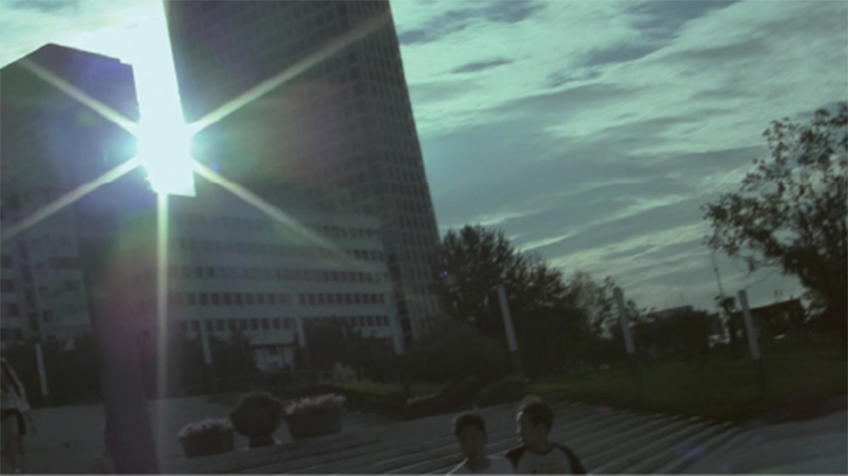PRISMA
IM Cheolmin
- Korea
- 2013
- 61min
- HD
- color
Synopsis
PRISMA means prism in Latin and the title itself shows the vision of the lm. There are images broken and distorted, noise sounds, and narrative-breaking narration. It boldly deconstructs the existing cinema rule, and even denies it. The lm becomes a prism and an illusion, disappears into the light or goes through it. In this unkind and knotty work, we try to nd clues in a hard way but it is never easy. It’s because broken things must have lost its use already. Rather, it would be urgent to seek for the cause why these are segmented like so, or to engage in another creative work that connects the fragmented pieces together. PRISMA starts from a pile of collected sounds and image errors (whether intended or not) and then repeats simple scenes in which the director looks out of the window. This shows the process of lmmaking but at the same time it looks like another sequence error linked to the non-narrative sequences in the opening. The camera, sound and light busily work together, but in one way it seems to focus what is beyond the window. In the next scene, the camera glamorously goes over every inch of the room and then leaves, making this scene an omniscient point of view and allows us to experience the cinematic magic. The lm seems to reect alleys and the outside world but it soon enumerates images of others. Individual images connect themselves or clash with each other in order to seek for meaning and meaninglessness. After swimming between the trace of time and space of others, PRISMA comes back to the opening scene. In the ending sequence, PRISMA presents the director’s empty bed and a square window frame. The window that was once a frame seeking for ‘something’ outside now becomes a screen. In the lm of extremely condensed images, what does it try to say? Now, again, PRISMA is about to ask about the lm itself as a medium. (KIM Dong-hyun)
Director
-

IM Cheolmin
B-inb B-ing (2016)
PRISMA (2013)
Golden Light (2011)
Secret Garden (2010)
Credit
- Cinematography IM Cheol-min
- Editor IM Cheol-min
- Sound IM Cheol-min
PRODUCTION COMPANY & WORLD SALES
PRODUCTION COMPANY & WORLD SALES
E-mail minihanul@naver.com
